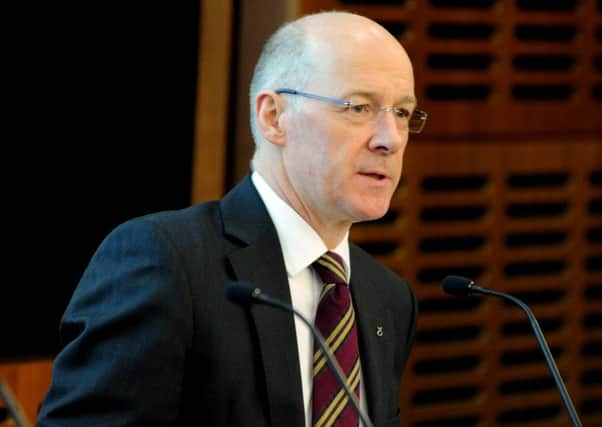Chris Harte: Only uncertainty is certain


However, something doesn’t add up. Yes, confidence is high in some sectors – tourism had a very positive summer and construction seems to be increasingly productive. So why are many in the business community sounding warning bells? Einstein once pointed out that while the laws of mathematics refer to reality, they are not in and of themselves certain; and as far as they are certain, they do not refer to reality. There is something of the Scottish economy in this.
What lies ahead is a period of real uncertainty. With the independence referendum behind us, the possibility of Brexit now looms large. And while the outcome of the Holyrood elections feels predictable, its impact on domestic and UK politics is unclear. The “new normal” will be characterised by positives appearing as frequently as negatives and underpinned by variable economic performance and political ambiguity.
Advertisement
Hide AdAdvertisement
Hide AdWe are increasingly talking to businesses about equipping themselves for this. Nominal economic growth, pressures on productivity and poor comparisons with UK averages are all barriers to progress, but not prohibitively so. Indeed, this feeling of uncertainty has prevailed in some sectors ever since the recession and hardly feels “new” at all. The difference now is that the dynamic has hit all businesses and could dominate for years to come.
Let’s be clear: this is not a “batten down the hatches” moment. We still have healthy economic indicators and many sectors are exporting into new markets and seeing strengthening demand domestically.
Successful businesses will always be those that can adapt: remaining relevant to customers, whatever the economic or political dynamics, will lead to success. The Darwinian aphorism about those best able to adapt to the changing environment in which it finds itself has never been more appropriate than in the past decade.
Uncertainty about the kind of Scotland we will live and work in risks diluting confidence and impacting decision-making. We try to help businesses navigate these points in turn, but the overall effect is hard to mitigate against. There are clear legal undercurrents to the trading environment, too. The ongoing negotiations on the Scotland Bill, for example, will impact everything from income tax and borrowing powers to air passenger duty, social care and maternity benefits.
Both public and private sector are feeling downward pressures on expenditure at the moment as all of us find ways to become more efficient. Part of that process should be a very clear assessment of how to do things differently. This isn’t about doing more for less – this is about novelty, innovation and thinking differently. Many of our clients have found solutions to these issues by seeing business challenges in a new light: one that provides opportunity, not constraint.
l Chris Harte, CEO, Morton Fraser LLP.